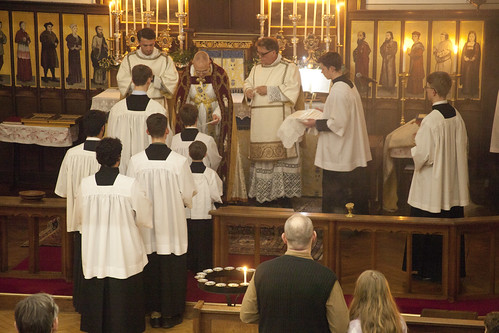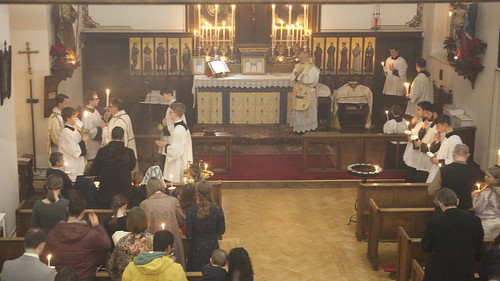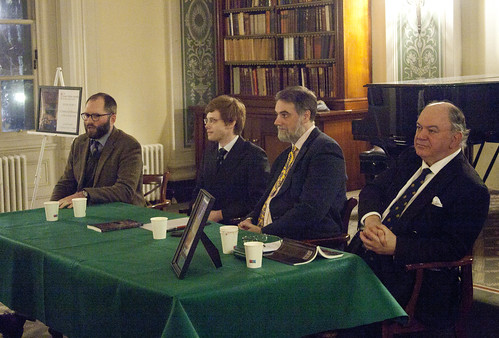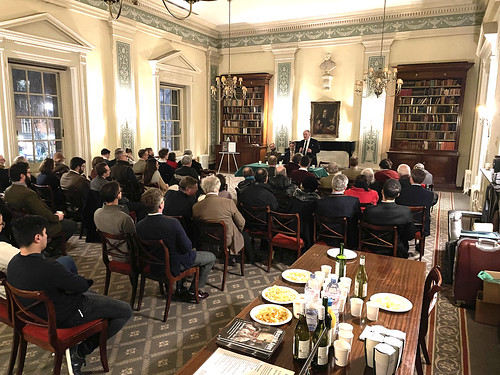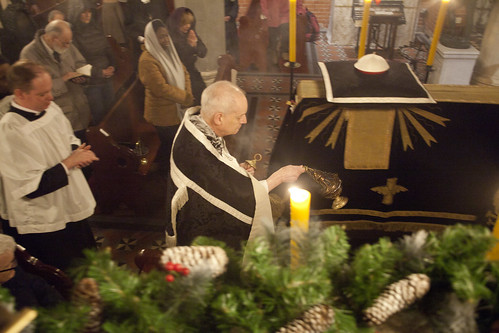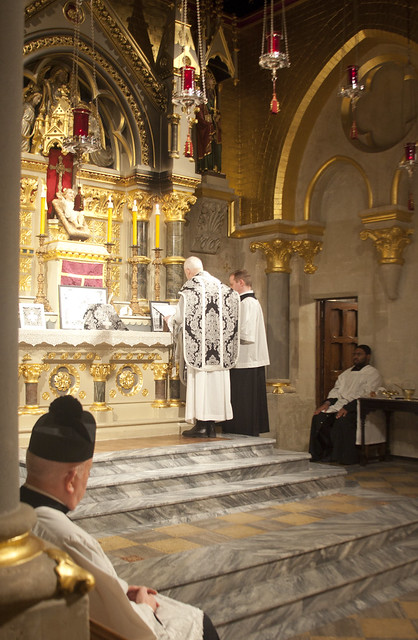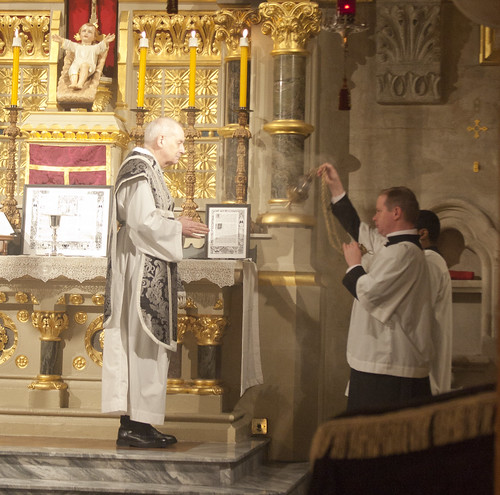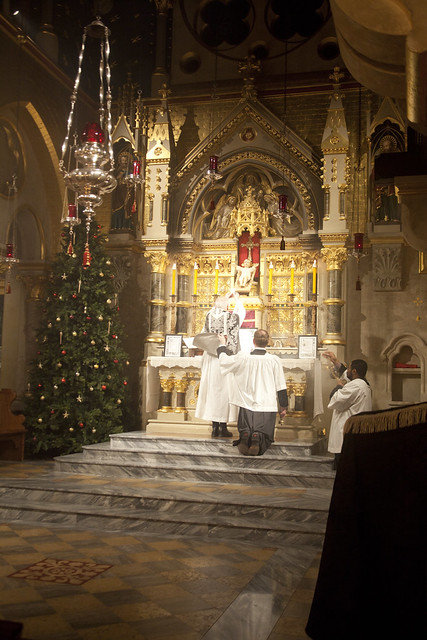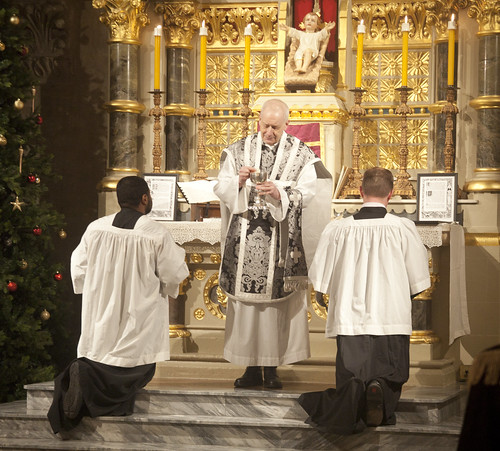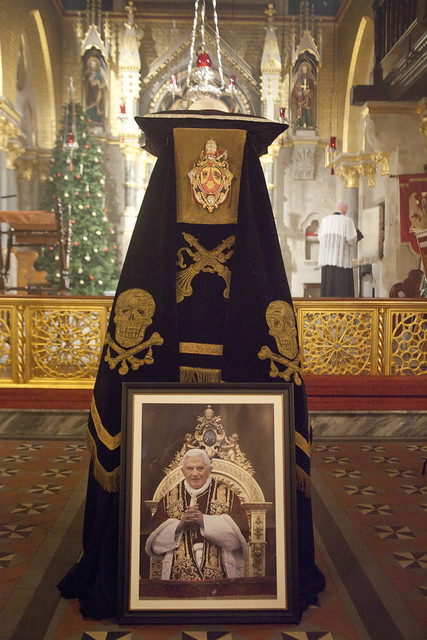Chairman's Blog
Candlemas in Oxford
Visit to Ireland
74 Merrion Square S,
Dublin 2, D02 HH99
Liturgy and Marriage'
Chairman's Briefing: the African Bishops and the Vatican
Another of my 'briefings' to supporters of the Latin Mass Society.
It begins:
Cardinal Abongo In the last Briefing I introduced Fiducia supplicans and initial reactions to it. These reactions have continued to come in, and many of them are less than welcoming. Indeed, only a small number of Bishops’ Conferences have made statements expressing any pleasure about the document being published. Most official reactions have been very guarded, and some, while diplomatic, clearly regard the document as ill-judged. Many of the strongest negative reactions have come from African Bishops’ Conferences.
You can see my latest 'briefing' here.
Sign up to receive them by email here, along with our monthly newsletter.
Book launch for 'A Defence of the Monarchy'
Blessings for Irregular couples: a conversation with Fr McTeigue
Link With Show Notes:
https://directory.libsyn.com/
Direct Audio Download:
http://traffic.libsyn.com/
Support the Latin Mass Society
Anniversary Requiem for Pope Benedict XVI: photos
Artistic modernists rally for the Traditional Mass: in the Catholic Herald
Strange bedfellows: Unlikely figures who rallied around the Traditional Latin Mass in the 60s and 70s
When the post-Vatican II liturgical reform was getting underway in 1966, and again when the reformed Mass had been unveiled in 1971, petitions signed by intellectuals and cultural figures – poets, writers, artists, musicians – called for the preservation of the older liturgy, alongside the new. These voices were heard by Pope Paul VI, who tried to insist on the preservation of the sung Latin Office in Sacrificium laudis in 1966, and granted England and Wales permission for continuing celebrations of the older Mass in 1971. This was extended to the whole world by Pope John Paul II in 1984.
It is not surprising to find among the 1966 petitioners the reactionary convert novelist Evelyn Waugh, or the 1971 petitioner Agatha Christie, with her appreciation for the reassuring and nostalgic alongside the sinister and murderous. It is more surprising to find the non-Catholic, homosexual artistic modernists Benjamin Britten and WH Auden, both signatories in 1966. Auden, who by then had returned to the High Anglicanism of his upbringing, went on to criticise Anglican liturgical reform in the strongest terms. Before his death, TS Eliot also turned out to have archly traditional opinions on Anglican worship.
Artistic modernism and the Traditional Mass
This is a reminder that the relationship between artistic modernism and traditional artistic forms is a complex one. By definition, modernism involves a rejection of artistic conventions, but there is an open question as to which conventions are being overturned. The impulse of modernism is a response to modernity—new technology, social change, and so on—but there is again an open question regarding what form this response will take.
Those brought up in a strongly-manifested Catholic culture may feel that modernity is a challenge that requires the Church to change in order to address it, or they may feel even that modernity has proved the Church wrong. Artistic modernism may be an expression of this stance: James Joyce is the outstanding artistic example of such a view.
Other artists, no less rebellious, took things in a very different direction. Those whose lives have been dominated by a secularised culture, characterised by mass-produced art, may also take the view that their own culture is inadequate to the demands of the time: demands made, in particular, by the wars, political crises, and economic convulsions of the modern age. It is equally clear, however, that this culture is itself the product of modernity: in other words, modernity has created a culture which does not equip people to deal with modernity. To rebel against it, and to seek out less inadequate cultural forms, may involve the overthrow of the modern in the interest of reviving something older.
Non-Catholics supporting the Traditional Mass
Last month I launched a new book, The Latin Mass and the Intellectuals: Petitions to Save the Ancient Mass from 1966 to 2007. Many, if by no means all, readers will have heard of the “Agatha Christie Petition” which was presented to Pope Paul VI in 1971, stimulating him to given the first “indult” in favour of the Traditional Mass, for England and Wales. The story is much more complex and interesting than this, however.
For many years the main public source of information about the petitions was a 1999 article by Alfred Marnau, that had appeared in the Latin Mass Society’s Newsletter and was subsequently made available online. English-language references to the 1971 petition since then, up until now, have invariably used this as their sole source. It hasn’t helped that the UK Catholic press at the time of the petition and indult observed a substantial, if now quite complete, news blackout about them. The Latin Mass Society had to feed the news to The Times newspaper in order to get it into the public domain at all, and the text of the Indult was not made available to them by Cardinal Heenan for many months. Readers may remember the inability of the archivists at the Dicastery for Divine Worship to find the indult (we sent Cardinal Roche a copy).
Alfred Marnau was a hero of the early movement; after the petition he became the Chairman of the Latin Mass Society, and later founded Pro Ecclesiae et Pontifice to campaign on orthodox doctrine and Catholic education. However, in 1999 he was dying, and his article gives a rather incomplete picture of the petition, its organisation, and its wider context. He doesn’t claim to have written the text, for example, but does not explain that the original was in Italian, and that in addition to the 57 names
Reactions to Fiducia Supplicans
'To bless couples in an irregular situation and same-sex couples is a serious abuse of the most Holy Name of God, since this name is invoked upon an objectively sinful union of adultery or of homosexual activity.'
' In conclusion, the Catholic Bishops Conference of Nigeria assures the entire People of God that the teaching of the Catholic Church on marriage remains the same. There is, therefore, no possibility in the Church of blessing same-sex unions and activities. That would go against God’s law, the teachings of the Church, the laws of our nation and the cultural sensibilities of our people. The CBCN thanks all the Priests for their accompaniment of married couples, asking them to continue in all they do to sustain the sacrament of holy matrimony and never to do anything that would detract from the sacredness of this sacrament.'
Cardinal Ambongo of Congo, President of Symposium of Episcopal Conferences of Africa & Madagascar (SECAM)
'The ambiguity of this declaration—which lends itself to many interpretations & manipulations—is causing much perplexity among the faithful & I believe that...we need to speak out clearly on this issue in order to give clear guidance to our Christians.'
'I very much welcome this document and am grateful for the pastoral perspective it adopts. In Fiducia supplicans it is explained that, in principle, it is possible and permissible for the ordained pastor to respond to the wishes of couples who ask for a blessing for their partnership, even if they do not live in all respects according to the norms of the Church. This means that couples who do not have the opportunity to have a church wedding due to a divorce, for example, and same-sex couples can be given a blessing.' (machine translation)
'It turns out that theological honesty and a sense of faith are important milestones on the way to changing the Church. A mere bondage to prohibition is not Catholic.'
who always wants to remind those who are living the Christian life in a less than perfect way that
they are, nevertheless, loved and cherished by God. To all of Jesus’ brothers and sisters, the
Church should never fail to be a source of welcome, compassion, and blessing.'
'I invite all in the Archdiocese of Cardiff and the Diocese of Menevia to read and reflect on Fiducia supplicans carefully, so that they are aware of the parameters in which clergy may impart a blessing to others who seek it from them.'
'It’s surprising that (they did not) proceed in a synodal manner, in line with the ecclesiology of the Second Vatican Council. We would have been spared the dissenting reactions of episcopal conferences that we are witnessing, for example.'
'We note the noble pastoral desire to assist people to move forward by renewal of life and the call to conversion, building on all aspects of natural good will and virtue. Nevertheless, we see no situation in which such a blessing of a couple could be properly and adequately distinguished from some level of approval. Thus, it would inevitably lead to scandal – to the individuals concerned – to those involved directly or indirectly in the blessing – or to the minister himself. Furthermore, we fear that the practice of these blessings would confuse the faithful over the actual theology of marriage and human sexuality. Indeed, from the comments in the media over the past few days, and from concerns passed on to us by the faithful, we can already see such misunderstandings. We believe that genuine charity always follows true doctrine and that such blessings would work against the legitimate care a priest owes is flock. With honest parresia and from our own experience as pastors we conclude that such blessings are pastorally and practically inadmissable.'

